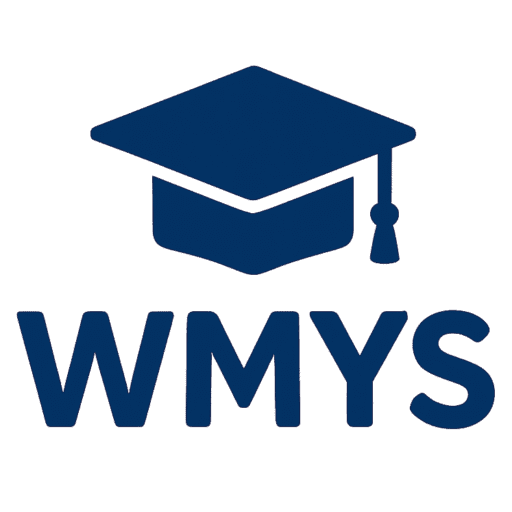Start Your Academic Journey: Transition Scholarships in Germany for 2025/2026
Transitioning from high school to a university abroad can be exciting—but also a little overwhelming. Fortunately, Germany offers School to University Transition Scholarships that make this leap smoother for international students starting their undergraduate studies.
These scholarships provide not only financial support. They include mentorship, language support, and guidance—all to help you feel welcomed, supported, and set up for academic success.
Germany is one of the most student-friendly countries globally, offering low or free tuition, world-class universities, and safe, vibrant cities. In this blog, we’ll discuss the best transition scholarships in Germany for 2025/2026 and how you can apply.
What Are School to University Transition Scholarships?
These mostly scholarships are more attractive and designed for international students moving from high school into undergraduate programs at German universities. Besides covering costs like tuition, housing, and daily living, many programs also offer:
Mentoring by university staff
German language training
Workshops and cultural integration sessions
Career orientation and academic advising
The main goal is to ease the cultural and educational shift, helping you thrive from day one.
Why Study in Germany?
Germany still stands out attractive place for students for several reasons:
Free or low-cost tuition at public universities
Multicultural student environment
Safe cities with strong student support systems
Hundreds of globally ranked degree programs
Post-study work and permanent residence opportunities
Top Transition Scholarships for 2025/2026
Following are some of the best scholarship programs designed for students beginning their undergraduate studies in Germany:
1. DAAD Scholarships for Undergraduate Preparation
The most famous German Academic Exchange Service (DAAD) supports international students aiming for full-time degrees in Germany.
Covers monthly living expenses
Offers German language support
Helps with university applications
Eligibility: Non-EU students with excellent school grades
Scholarship Website →
2. Deutschlandstipendium (Germany Scholarship)
This national scholarship is offered by universities individualy with government support and private sponsors in mostly cases.
€300 per month
Access to mentorship and networking
Open to international students
Eligibility: Strong academic performance and community engagement
Scholarship Website →
3. Konrad-Adenauer-Stiftung Scholarships
For students active in politics, religion, or social work.
Up to €830/month + book/travel allowance
Seminars and leadership training
Eligibility: Young future leaders from developing countries
Scholarship Website →
4. Erasmus+ Undergraduate Support
While often known for EU students, Erasmus+ also offers opportunities for some non-EU students through partner programs.
Travel and living allowance
Language support
Short-term or full academic year options
Scholarship Website →
Who Can Apply?
Most transition scholarships are open to:
International students (non-German citizens)
High school graduates (WASSCE, A-Level, etc.)
Those applying for a full-time undergraduate degree in Germany
Applicants aged 21 or under (in most cases)
Students with strong academic records and motivation
How to Apply for a Transition Scholarship
Here’s your step-by-step guide:
Step 1: Choose a Course and University
Visit official university websites and decide your degree path.
Step 2: Review Scholarship Requirements
Check each scholarship’s deadline and eligibility.
Step 3: Prepare Your Documents
Usually required:
Academic transcripts
Proof of high school completion
Motivation letter
Letters of recommendation
Proof of language skills (English or German)
Passport or ID
Step 4: Submit Your Application Early
Apply well before deadlines, as many close 6 months before classes begin.
Tips to Strengthen Your Application
Write a sincere motivation letter—share your passion for studying in Germany.
Highlight any community involvement or leadership roles.
If possible, learn basic German to demonstrate commitment.
Keep your documents clean, translated, and verified.
Don’t wait until the last day—early applications show responsibility.
What If You Don’t Win?
Apply to tuition-free German universities
Consider working part-time (up to 20 hrs/week is allowed)
Look for smaller local scholarships or apply next year
Reach out to NGOs, family networks, or alumni groups for support
FAQs
1. Do you have to speak German to apply?
Not necessarily. They are mostly in English, but to have some German for everyday use is helpful and a bonus in your application.T
2. Can I apply for more than one scholarship?
Yes. You are free to apply for several scholarships provided that you qualify for each program and meet the deadlines.
3. As a first-time applicant, what is my chance?
Excellent! Most of these scholarships go to first-year university students. Highlight an excellent personal statement and school record.
Final Thoughts
School to University Transition Scholarships in Germany for 2025/2026 are a golden opportunity for international students. They‘re not just money—they‘re a passport to success in one of the world‘s top education systems.
Want more updates like this? Visit wemakeyouscholar.com and subscribe to our WhatsApp Channel for alerts on scholarship changes, education policies, and funding news.




